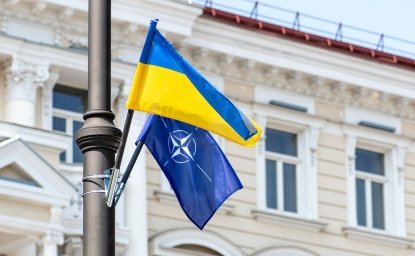The Latest
Russian President Vladimir Putin is visiting China to discuss mutual strategic interests with his counterpart President Xi Jinping. In an official joint statement, the two leaders described themselves as "prioroity partners." It was only a week ago that Xi was in France, where President Macron and other EU leaders pressed him to exert influence on Putin to end the war in Ukraine.
Robert Daly, Director of the Kissinger Institute on China and the United States, provides an overview of the significance of this meeting. He provides insights into how China and Russia will seek to protect themselves from Western sanctions, strengthen their partnership, and why it’s important to look for cracks in the evolving alliance between China, Russia, North Korea, and Iran.
Video Transcript
-
Putin Arrives in Beijing as Russia Seeks to Deepen Its Strategic Partnership with China
Guest


Kissinger Institute on China and the United States
The Kissinger Institute works to ensure that China policy serves American long-term interests and is founded in understanding of historical and cultural factors in bilateral relations and in accurate assessment of the aspirations of China’s government and people. Read more

Explore More
Browse Insights & Analysis
360° View of How Southeast Asia Can Attract More FDI in Chips and AI

A Case for a North American Common Tariff





